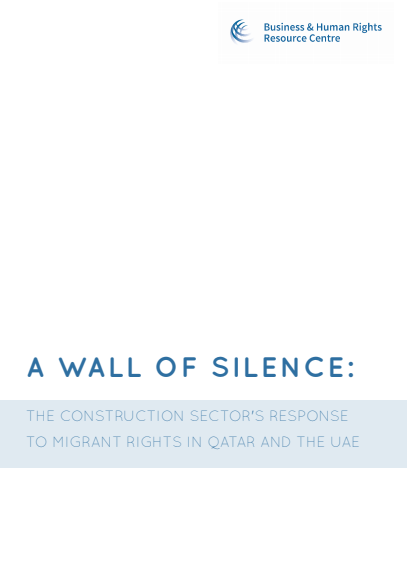Business & Human Rights Resource Centre has quizzed 100 construction companies operating in Qatar and the UAE on the measures they are taking to stop exploitation of migrant workers. Only 22 responded, indicating a shocking level of inaction.
Despite increasing public pressure, companies involved in flagship projects for the Qatar World Cup and the 2020 World Expo in Dubai failed to respond to this outreach. Even beyond the survey, only 39% have publically available human rights commitments.
This lack of commitment is alarming given the widespread exploitation and abuse faced by the large numbers of migrant workers employed in the construction industry in Qatar and the UAE. The appalling treatment of migrant workers in the region has been widely publicised, so no company has an excuse for inaction.
The responses we did receive reveal the wide gulf of understanding and commitment between a few pioneering companies and a long tail of laggards. Of the 100 companies contacted, only a handful reported important steps in areas such as recruitment, worker voice and subcontracting, providing examples that others can follow. Selected examples of better practice are highlighted in the briefing.
The risks inherent in accepted business models and complex supply chains, however, can not be resolved by companies acting in isolation: collective industry-wide efforts are needed. As it stands, the current lack of industry transparency limits the ability of companies to tackle shared challenges and move forward together on the basis of agreed-upon standards and good practice.
Summary recommendations:
- Business partners and civil society actors should press for increased transparency from companies, rewarding those that take a responsible approach to the recruitment and employment of migrant workers and drawing attention to company inaction.
Companies should:
- Adopt a public human rights commitment and conduct robust due diligence.
- Take urgent action to protect migrant workers in key risk areas.
- Ensure workers have access to individual and collective grievance mechanisms.
Click here to view the companies’ responses to the 2016 survey

